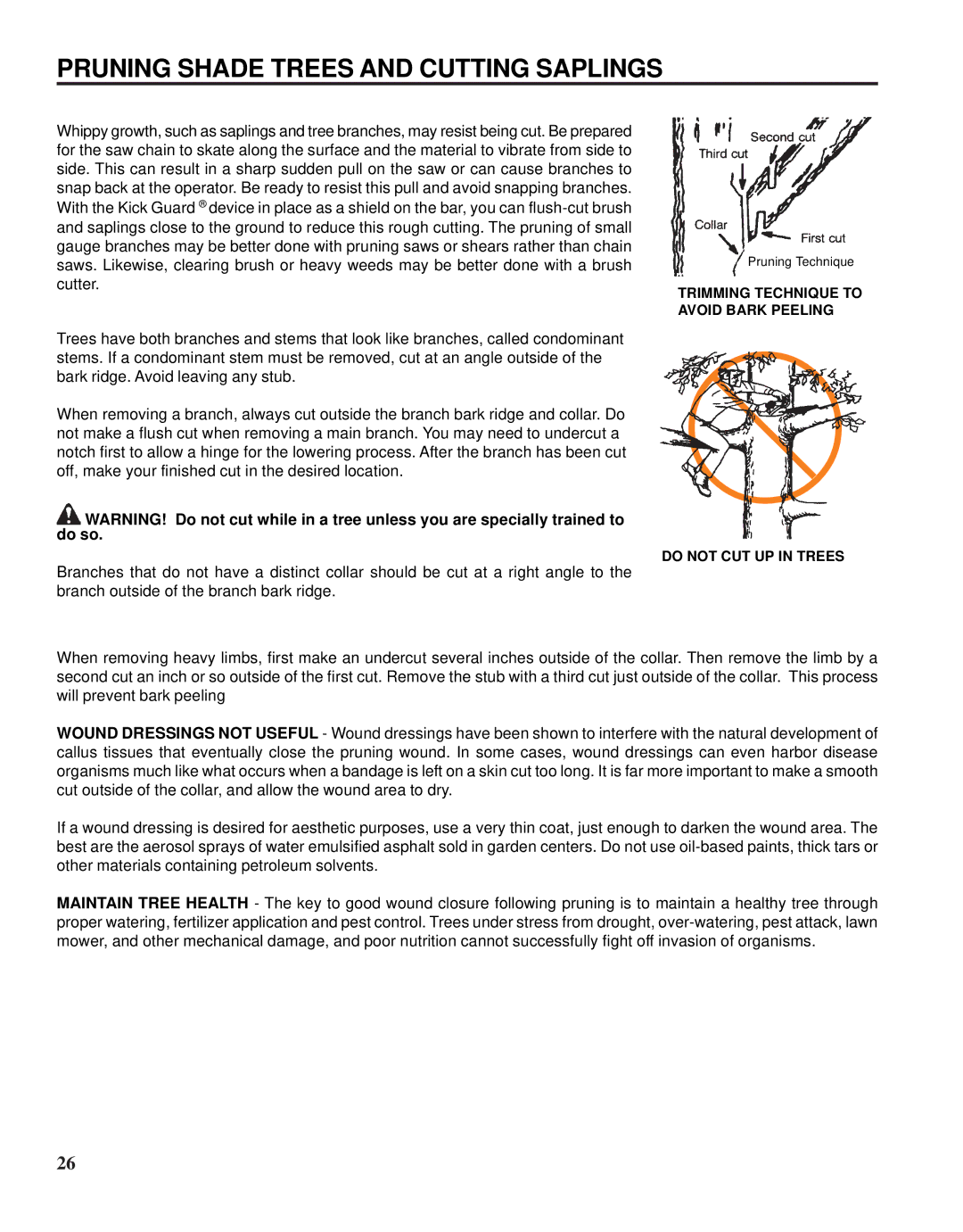
PRUNING SHADE TREES AND CUTTING SAPLINGS
Whippy growth, such as saplings and tree branches, may resist being cut. Be prepared for the saw chain to skate along the surface and the material to vibrate from side to side. This can result in a sharp sudden pull on the saw or can cause branches to snap back at the operator. Be ready to resist this pull and avoid snapping branches. With the Kick Guard ® device in place as a shield on the bar, you can
Pruning Technique
TRIMMING TECHNIQUE TO AVOID BARK PEELING
Trees have both branches and stems that look like branches, called condominant stems. If a condominant stem must be removed, cut at an angle outside of the bark ridge. Avoid leaving any stub.
When removing a branch, always cut outside the branch bark ridge and collar. Do not make a flush cut when removing a main branch. You may need to undercut a notch first to allow a hinge for the lowering process. After the branch has been cut off, make your finished cut in the desired location.
![]() WARNING! Do not cut while in a tree unless you are specially trained to do so.
WARNING! Do not cut while in a tree unless you are specially trained to do so.
DO NOT CUT UP IN TREES
Branches that do not have a distinct collar should be cut at a right angle to the branch outside of the branch bark ridge.
When removing heavy limbs, first make an undercut several inches outside of the collar. Then remove the limb by a second cut an inch or so outside of the first cut. Remove the stub with a third cut just outside of the collar. This process will prevent bark peeling
WOUND DRESSINGS NOT USEFUL - Wound dressings have been shown to interfere with the natural development of callus tissues that eventually close the pruning wound. In some cases, wound dressings can even harbor disease organisms much like what occurs when a bandage is left on a skin cut too long. It is far more important to make a smooth cut outside of the collar, and allow the wound area to dry.
If a wound dressing is desired for aesthetic purposes, use a very thin coat, just enough to darken the wound area. The best are the aerosol sprays of water emulsified asphalt sold in garden centers. Do not use
MAINTAIN TREE HEALTH - The key to good wound closure following pruning is to maintain a healthy tree through proper watering, fertilizer application and pest control. Trees under stress from drought,
26
